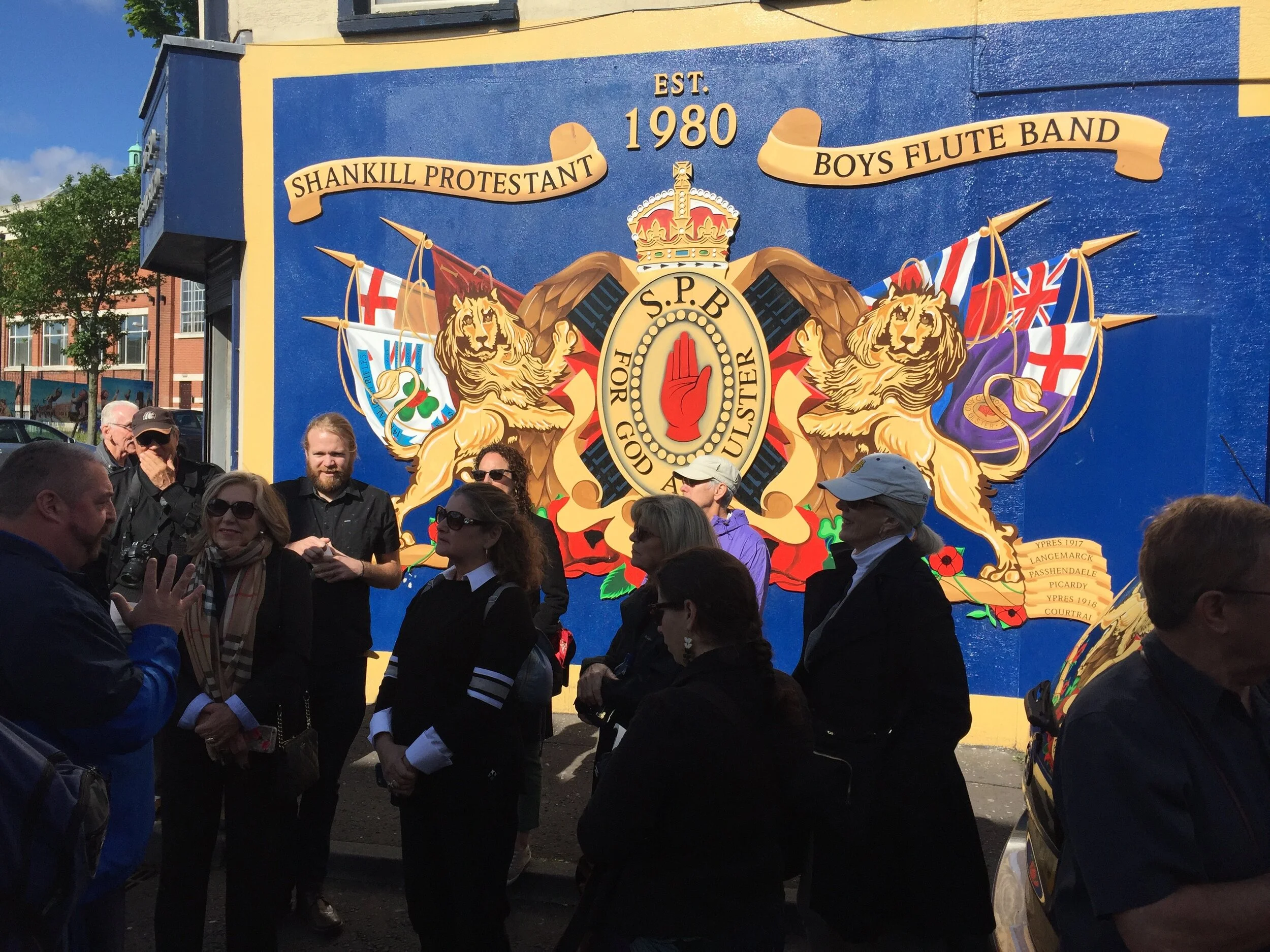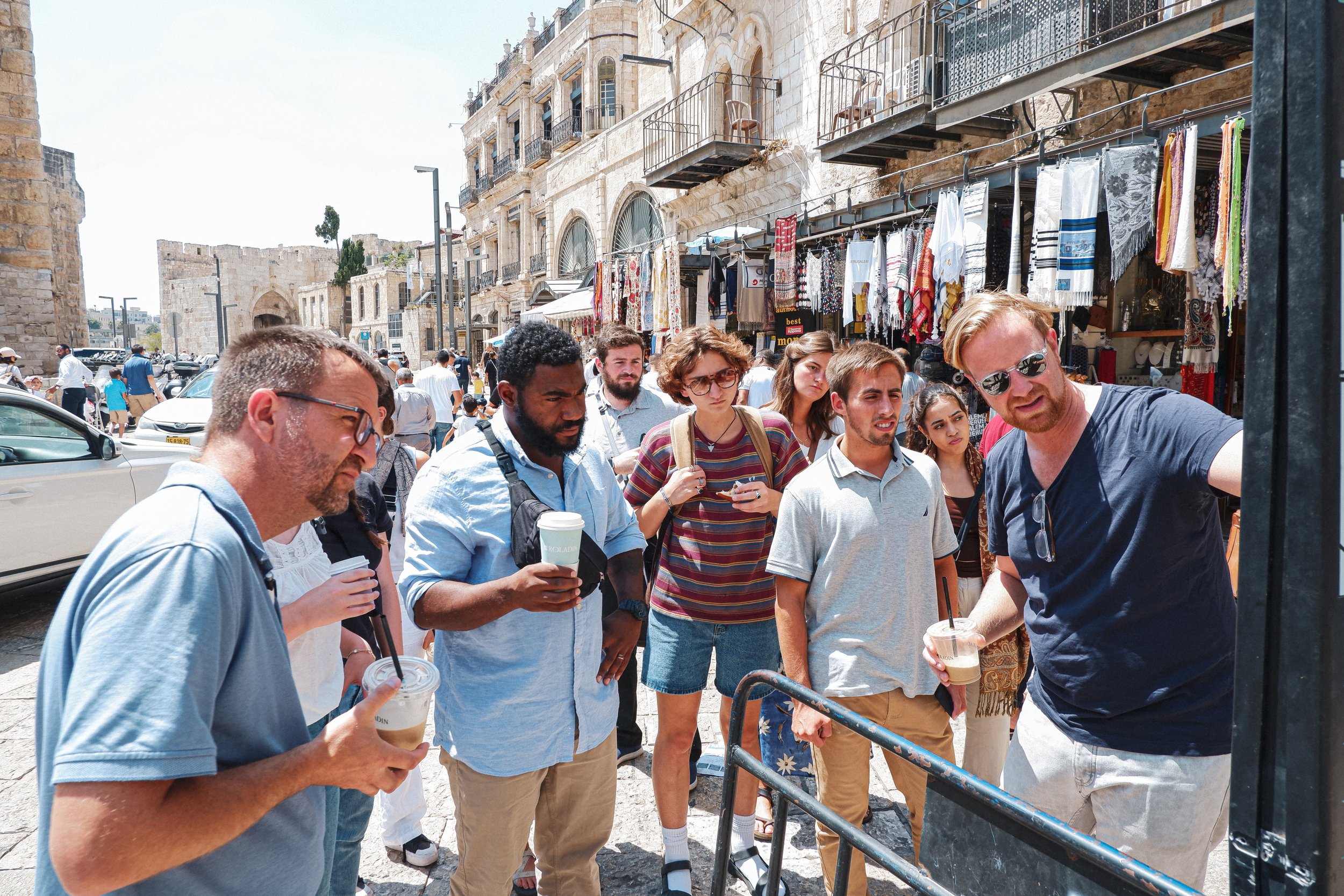The Legacy of the
2008 – 2020: BEYOND SOUNDBITES AND STEREOTYPES
The Olive Tree Initiative (OTI) was an award-winning, university-based experiential learning program that ran from 2008 to 2020. Founded by Daniel Wehrenfennig and Paula Garb at the University of California, Irvine (UCI) and later expanding to multiple campuses, OTI pioneered experiential education in conflict resolution, bridging campus divides through direct engagement with global conflicts.
While OTI was discontinued in 2020, its core team and founding members have since established a new and independent educational non-profit organization, the Center for International Experiential Learning (CIEL), which carries forward the mission of global engagement through education and has expanded the reach of the work by increasing and diversifying its audience
This website serves as a commemoration of OTI’s achievements, preserving its history, impact, and contributions to student leadership, academia, and international conflict education.
1. The Olive Tree Initiative: A Groundbreaking Educational Model
Mission & Vision
OTI was founded to address campus polarization over the Israeli-Palestinian conflict by offering students an opportunity to travel to the region, meet diverse stakeholders, and develop a nuanced, first-hand understanding of complex global conflicts.
OTI’s core mission was to:
Foster civil discourse and informed dialogue on university campuses.
Promote conflict analysis and resolution through immersive education.
Develop future leaders by integrating hands-on field experience with academic study.
Create a network of engaged scholars and professionals dedicated to global learning
OTI was rooted in non-partisanship, critical inquiry, and cross-cultural dialogue, ensuring that students engaged with the realities of conflict with an inquisitive and nuanced approach while challenging preconceived notions and fostering a deeper understanding of the dynamics of conflict and its resolution.
Experiential Learning in Action
OTI’s approach combined academic coursework, immersive travel, and post-trip engagement, providing a comprehensive learning experience.
Structured pre-trip education: Students completed 30+ weeks of seminars, workshops, and interdisciplinary coursework in history, politics, and conflict resolution.
Immersive, on-the-ground travel experiences: Delegations met with government officials, community activists, academics, journalists, and civilians living in conflict and post-conflict zones.
Post-trip engagement & research: Students shared insights through public forums, academic research, and leadership initiatives on campus, furthering the impact of their experiences.
OTI set a precedent for how universities engage with global conflicts, empowering students to move beyond rhetoric and toward deep, evidence-based understanding.
2. OTI’s Impact: By the Numbers
Between 2008 and 2020, OTI achieved:
500+ students and 100+ community members sent on study trips to the Middle East, South Caucasus (Turkey, Armenia and Georgia), Northern Ireland, and Colombia
Campus chapters established at UCI, UCLA, UC Berkeley, UC Santa Barbara, UC Santa Cruz, San Diego State University, Chapman University, University of Wyoming, and the University of Glasgow.
Over 100 community presentations and university panel discussions.
National and international recognition, including awards from the U.S. State Department, U.S. Congress, and the University of California system.
Integration of OTI’s methodology into university curricula, impacting interdisciplinary research and policy discussions.
A global alumni network contributing to fields such as diplomacy, law, journalism, human rights, and international development.
3. Regional Programs & Study Trips
Middle East (Flagship Program)
Focus: Israeli-Palestinian conflict, regional diplomacy, refugee issues
Visited Israel, the West Bank, and Jordan (and Egyt one year)
Engaged with political leaders, peace activists, journalists, human rights organizations, and local communities.
Explored historical narratives, transgenerational trauma, the OSLO peace process, the role of civil society in conflict, the role of religion in conflict security, occupation, human rights, refugees and international aid, and much more.
South Caucasus Program (2012–2020)
Focus: Historical reconciliation, genocide recognition, and regional diplomacy
Examined Turkish-Armenian relations and the long-term effects of the 1915 genocide.
Visited Istanbul, Ankara, Yerevan, Van, Ani, Kars, and Tbilisi, engaging with scholars, diplomats, and civil society groups.
Northern Ireland & Post-Conflict Studies
Focus: Reconciliation after “The Troubles”
Studied sectarian divisions and the peace process in Belfast and Derry.
Met with former paramilitaries, politicians, and community peacebuilders.
OTI’s experiential model was adaptable across conflicts, offering students first hand insights into historical narratives, national movements, negotiations, and paths to peace.
4. OTI Alumni: Shaping the Future
OTI’s alumni have pursued impactful careers in:
U.S. Department of State, United Nations, and European diplomatic services.
Leading think tanks, human rights organizations, and global NGOs.
Academia, research institutions, and investigative journalism.
Notable achievements include:
Alumni awarded Fulbright, Rhodes, and Marshall Scholarships.
Graduates pursuing advanced degrees at Harvard, Yale, Oxford, Georgetown, and Sciences Po Paris.
Contributions to Foreign Policy, The Guardian, Al Jazeera, and The Washington Post.
Leadership roles in policy analysis, international law, and humanitarian response.
OTI’s impact extended beyond individual careers—it fostered a network of globally engaged professionals committed to conflict resolution and informed policymaking.
5. The Transition from OTI to CIEL
While OTI ceased operations in 2020, its founders and leadership team launched CIEL (Center for International Experiential Learning) to expand upon OTI’s core methodologies and increase their impact by diversifying the audiences we engaged with.
What is CIEL?
An independent educational non-profit organization, separate from OTI (and the University of California system)
Maintains OTI’s commitment to immersive learning in conflict affected regions.
Expands programs beyond university students to include professionals, faith leaders, policymakers, and civil society leaders.
Broader global scope, engaging with topics such as climate migration, global governance, and human rights.
6. Honoring OTI’s Legacy
As we commemorate OTI’s impact, we invite alumni, supporters, and scholars to:
Explore the OTI Digital Archive:
Support Experiential Learning – Engage with CIEL’s ongoing programs.
Thank You for Supporting the Olive Tree Initiative
Though OTI has ended, its impact continues through its alumni, its research contributions, and the new initiatives led by its founding team.
OTI remains a model for bridging divides, transforming perspectives, and empowering the next generation of global leaders.
2008 – 2020: A Legacy of Learning, Dialogue, and Understanding beyond soundbites and stereotypes










